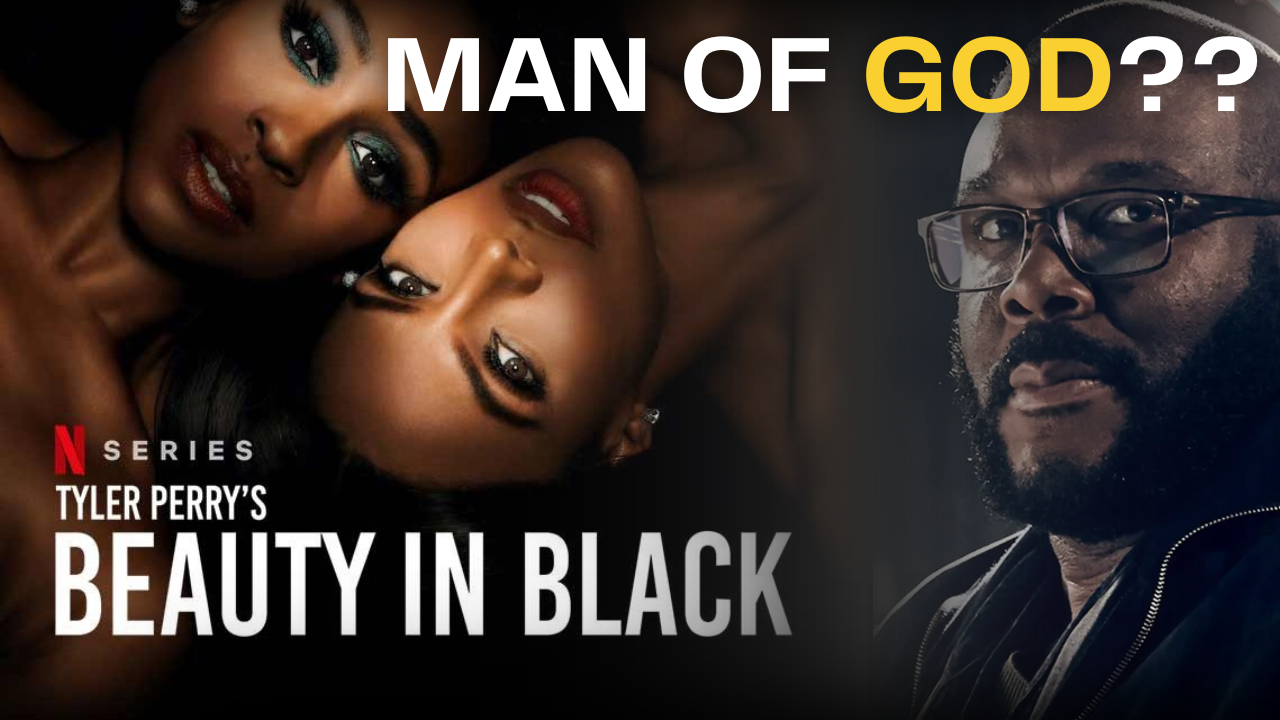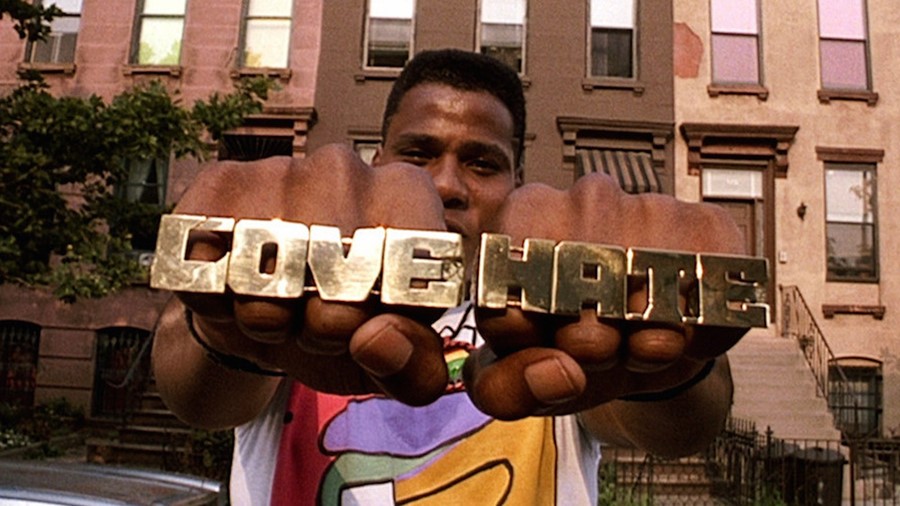Tyler Perry’s ‘Beauty in Black’: The Inside Story of Netflix’s Boldest Release Yet
In what’s quickly becoming 2024’s most controversial streaming release, Tyler Perry’s Beauty in Black has not only set records but ignited a national debate about art, values, and the future of streaming entertainment. With 8.7 million views in its first week and a 55% increase in viewership, Beauty in Black has achieved staggering success. But beneath the glowing metrics, a storm of controversy surrounds the project, exposing a clash between Perry’s public image, Netflix’s strategy, and the
audience’s expectations.
The Shocking Transformation: From Faith-Based to Boldly Explicit
For years, Tyler Perry has been synonymous with faith-oriented entertainment. Known for his family-friendly themes and spiritual messages, Perry’s productions have resonated with audiences looking for a moral core in their media. However, Beauty in Black marks a clear shift. An industry insider close to Perry’s team reveals, “He’s well aware he’s not an artist—he’s a businessman. Perry is acutely aware of the audience he’s catering to and isn’t shy about adapting to what sells.” This pragmatism, some argue, is driving his foray into more explicit content, aligning more with the demands of a competitive streaming industry than his traditional values.
Inside the Six-Day Production Mystery: Speed Over Substance?
One of the most eye-opening revelations about Beauty in Black is its production pace. A former crew member disclosed that the entire project was shot in just six days. For comparison, most TV productions allocate 8–12 days per episode, and even fast-paced streaming schedules generally allow 10–14 days. This rushed timeline raises questions about the impact on quality. “The focus isn’t on perfection,” the insider explains. “It’s on churning out content quickly and keeping the pipeline flowing.”
Many industry insiders suggest that this relentless drive for efficiency sacrifices creative integrity, as the accelerated schedules leave minimal room for retakes or nuanced storytelling. For Perry, this high-speed production method might be financially rewarding, but it has led some critics to question whether his commitment to quantity is eroding the quality of his work.
Netflix’s Calculated Content Strategy: Testing Boundaries with Trusted Names
Netflix’s decision to greenlight Beauty in Black appears to be a deliberate move to push content boundaries while mitigating backlash by attaching it to Perry’s established brand. “This is a calculated move,” says media analyst Maria Rodriguez. “Netflix is leveraging Perry’s trusted name to introduce more provocative content to mainstream audiences without alienating their core viewership.”
This strategy aligns with Netflix’s broader content approach, which involves pushing gradually more explicit content to test audience limits.
By the Numbers
- Initial release: 5.6 million views
- First-week views: 8.7 million
- Platform ranking: #1 in the U.S.
- Viewer retention: 85%
The Content That Sparked the Outrage
- Explicit Scenes
- For the first time in Perry’s career, audiences are confronted with intimate scenes, raw dialogue, and themes that many feel contradict his earlier work.
- Production Choices
- With minimalistic filming and unfiltered dialogue, Beauty in Black has a raw, almost voyeuristic quality. Perry’s willingness to delve into moral gray areas—whether gratuitous or profound—has sparked intense debate.
Viewer Questions: Answered
Q: Why did Tyler Perry create such explicit content?
A: Experts point to three main drivers:
- Platform pressure to stand out in a crowded market.
- Fierce competition with other streaming giants.
- Changing audience expectations that prioritize novelty and boundary-pushing content.
Q: How does this align with his faith-based values?
A: Entertainment analyst James Thompson notes, “There’s a widening gap between Perry’s personal values and his professional choices, signaling a shift towards prioritizing business over tradition.”
Q: Is the explicit content integral to the story?
A: While showrunners argue it enhances character development, critics argue it feels excessive, with some labeling it “gratuitous.”
The Business Behind the Controversy: Profits Over Principles?
At the heart of this pivot lies a well-oiled business strategy. Financial analyst Sarah Chen breaks down the numbers:
- Lower production costs enable quicker turnaround.
- Shocking, provocative scenes guarantee media buzz.
- Publicity, whether positive or negative, increases engagement.
Netflix’s Platform Strategy in Action
Netflix’s approach is straightforward:
- Gradually push boundaries in content.
- Test limits using creators with established fan bases.
- Monitor audience response carefully.
- Adapt to social feedback and analytics for future releases.
The Reality of Perry’s Production Process
Multiple crew members have spoken out about the rapid-fire pace behind Beauty in Black. The process is marked by:
- Rushed schedules.
- Minimal retakes and rehearsal time.
- Quick script adjustments that favor efficiency over detail.
As Netflix and Perry accelerate their production timelines, the tension between creative integrity and profit margins is increasingly under scrutiny.
Social Media Reacts
Audiences have taken to social platforms, sharing mixed reactions:
- “Couldn’t look away but felt guilty watching,” tweeted @StreamerLife.
- “This isn’t the Tyler Perry we knew,” noted @EntertainmentWatch.
- “Netflix is pushing boundaries too far,” posted @ShowCritic.
Expert Perspectives on the Cultural and Religious Implications
Dr. Sarah Williams, a media studies professor, notes, “This represents a significant shift in how creators balance personal values with market demands. Perry is not the first, nor will he be the last, to make compromises as streaming competition heats up.” Meanwhile, Pastor Michael Johnson weighs in from a faith perspective: “The industry often places creators in a position where they must choose between profitability and principles, testing the resilience of their values.”
Future Implications: The Streaming Wars Fuel New Standards
This controversy speaks to a larger trend in entertainment:
- Increased demand for provocative content.
- Shorter production cycles.
- Compromises on quality and values.
- Shifted expectations for content from traditional creators.
Looking Ahead: What Does This Mean for Viewers?
Audiences are left with complex choices. As streaming platforms continue to evolve, viewers will likely encounter more content that tests their boundaries, pushing them to discern which values they prioritize in their entertainment.
Common Viewer Concerns
Q: Will there be a Season 2?
A: Netflix has yet to confirm, but given the viewership numbers, renewal seems likely.
Q: Has Tyler Perry addressed the backlash?
A: Perry hasn’t issued a public statement, though insiders suggest he’s “proud of pushing boundaries.”
Q: How will this influence future projects?
A: Industry analysts predict this may lead to a wave of similarly controversial content, as platforms continue to battle for attention.
The Bottom Line: Redefining Streaming Success
As Beauty in Black continues to dominate Netflix’s charts, it represents a new era in entertainment. Tyler Perry’s strategic pivot reflects both a business decision and a cultural commentary on the changing landscape of media, where traditional boundaries no longer hold sway.
Final Thoughts: A Viewer’s Guide to Navigating Streaming Shifts
To navigate these evolving trends, viewers should:
- Understand content warnings.
- Stay informed on platform strategies.
- Recognize the balancing act creators face in an industry that increasingly favors profit over personal principle.
Join the Discussion
As the landscape of streaming entertainment shifts, we invite readers to share their thoughts on this unfolding story. Subscribe to our newsletter for exclusive updates and deeper insights into the trends shaping modern media.





